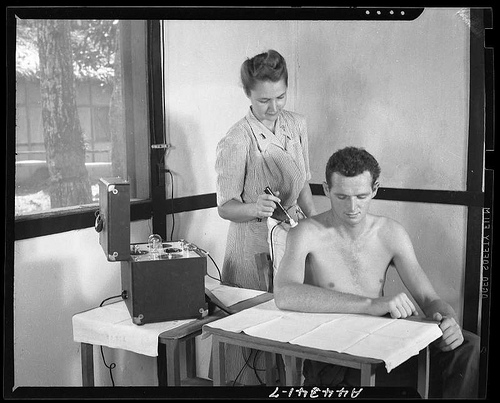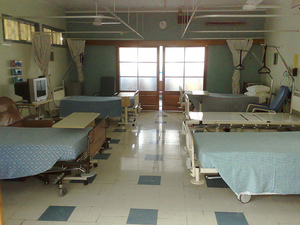 Today we would like to briefly discuss some of the steps you can take to avoid medical errors, in general. Although we help victims of medical errors seek justice and compensation, the best solution is to be informed, so you can avoid ever needing an attorney due to a tragic experience caused by medical error.
Today we would like to briefly discuss some of the steps you can take to avoid medical errors, in general. Although we help victims of medical errors seek justice and compensation, the best solution is to be informed, so you can avoid ever needing an attorney due to a tragic experience caused by medical error.
Medical errors can leave you or a loved one with severe physical injuries and emotional pain and suffering. As you know, medical errors can happen in a variety of places such as hospitals, clinics, out patient surgery centers, doctors’ offices, nursing homes, pharmacies and patient homes. On this blog, we have written about prescription errors, physician errors, nursing errors, and dental errors, to name a few. And these errors typically involve medicines, surgeries, diagnosis, and lab reports. Now we would like to discuss a few steps you can take to help avoid medical errors.
Many medical errors occur when doctors and their patients do not communicate effectively. In fact a recent study supported by the Agency for Healthcare Research and Quality found that doctors need to help their patients make informed decisions. Patients who are uninformed will logically be more susceptible to making errors regrading their medical care. So what can you do:
1. Be involved in your healthcare treatment– This could be the single most important thing you can do: participate, be an active partaker in all decisions that affect your health. Research shows that being active in your health care treatment leads to better results.
2. Make sure that you inform your doctor about all medications you are taking, including herbal remedies, vitamins, and over-the-counter drugs.
3. Make sure your doctor knows about any allergies or adverse reactions you have had to certain medications. This will help avoid prescription errors, doctors giving you the wrong medication.
4. When your doctor writes you a prescription, make sure you read it. Too many times, we pass off illegible prescriptions as “doctor talk.” You must ensure that you read the prescription given to you and that you understand it. Think about it: if you can’t read your doctor’s handwriting, there is a good chance, your pharmacist may not be able to read it either.
5. When you receive your medication from your pharmacist, double check, by asking if the medicine you are being given is indeed the medicine your doctor prescribed. The last thing you want is the wrong medication.
6. Read the label on your medication before you leave your doctor’s office or the pharmacy. If you don’t understand how to take your medication, ask the pharmacist or your doctor.
7. Ask for written information about the side effects that your medication may cause.
8. Regarding hospitals, you should consider choosing a hospital that has treated many patients affected by your same illness. You should also consider asking anyone who comes in direct contact with you, to wash his or her hands (bacteria infection can cause serious illness).
9. When you are discharged from a hospital, ask the doctor to explain your treatment plan.
10. How new is the doctor who is treating you? (Regardless of whether he or she is an emergency room doctor or in-patient doctor.)
We’ve come across a recent article that talks about how “greenhorn” doctors (“newbies”) have casued a serious spike in “fatal medication errors” throughout the United States. A recent study found that in counties with “teaching” hospitals, fatalities due to medication errors spiked each July, the same month that new doctors begin their residency.
Regrettably, even after taking some of the above-mentioned precautions and more, people will still be the victims of medical error. If you are one of those unfortunate people, call Williams Oinonen LLC today, because we will represent your case with zeal and ethics, with a view towards doing what’s best for you, always.
Continue reading →
 Contaminated food can cause injury or even death to consumers and cause expensive, costly lawsuits to sellers, making it very important that food is produced and stored in sanitary conditions. Yesterday federal agents seized food products from a rat infested warehouse in East Point Georgia, owned by the United Food Service Company. Close to one million dollars of contaminated food was confiscated.
Contaminated food can cause injury or even death to consumers and cause expensive, costly lawsuits to sellers, making it very important that food is produced and stored in sanitary conditions. Yesterday federal agents seized food products from a rat infested warehouse in East Point Georgia, owned by the United Food Service Company. Close to one million dollars of contaminated food was confiscated.  Georgia Injury Lawyer Blog
Georgia Injury Lawyer Blog


 Unfortunately, recent
Unfortunately, recent  Today we would like to briefly discuss some of the steps you can take to avoid medical errors, in general. Although we help victims of medical errors seek justice and compensation, the best solution is to be informed, so you can avoid ever needing an attorney due to a tragic experience caused by medical error.
Today we would like to briefly discuss some of the steps you can take to avoid medical errors, in general. Although we help victims of medical errors seek justice and compensation, the best solution is to be informed, so you can avoid ever needing an attorney due to a tragic experience caused by medical error.


 Frequently, people ask how much their claim worth. And the answer is never simple. In personal injury cases, too often attorneys in Georgia determine the value of a victim’s recovery solely based on multiplying the amount of an injured person’s medical bills. However, your recovery should not only be linked to a simplistic, mathematical formula.
Frequently, people ask how much their claim worth. And the answer is never simple. In personal injury cases, too often attorneys in Georgia determine the value of a victim’s recovery solely based on multiplying the amount of an injured person’s medical bills. However, your recovery should not only be linked to a simplistic, mathematical formula.